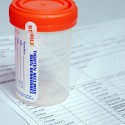Program is in the works to keep teens away from alcohol
Tarrant County mental health professionals and advocates are drafting a pilot program aimed at treating teens who are slipping into alcoholism.
The proposed High School Alcohol Diversion Program, modeled after college programs, would allow teens with alcohol violations to stay at their schools instead of being sent to alternative schools.
That would help prevent them from losing academic focus and allow professionals to help them combat alcohol abuse.
“We’re hoping that by fall 2009, we are up and running at one of the local high schools,” said Greg Sumpter, a Tarrant County probation officer who is working on the pilot program.
The proposal is the result of ongoing efforts by Mental Health Connection of Tarrant County to improve treatments for children and young adults struggling with problems including addictions, autism, attention-deficit hyperactivity disorder, trauma, and at-risk behaviors such as truancy and delinquency.
Mental Health Connection is a collaboration of area mental health professionals, consumers and advocates who have been working for about 10 years to close the gap between research and treatment.
That goal is the main theme at the group’s second annual symposium on mental health treatment, Bridging the Gap — Moving Toward Evidence-Based Practice.
The two-day event, which began Monday at Texas Christian University, continues today with expert discussion on how to prevent problem behaviors by using research-based mental health treatments.
Pasty Thomas, president of Mental Health Connection, said the group is trying to find the best treatments for the mental health issues challenging Tarrant County.
“If there is early intervention, it makes a world of difference,” Thomas said.
Part of the group’s work includes understanding the many reasons that young people abuse alcohol. For example, social anxiety — often manifested as extreme shyness — sometimes contributes.
“You are less able to resist pressure if you are socially anxious,” said Bruce Chorpita, a professor of psychology at the University of California and a symposium speaker.
Alcoholism often surfaces among shy teens who want to stop feeling bad about themselves and among thrill-seeking teens who drink for the buzz. But genetics also play a role, Chorpita said.
Understanding what treatment works for which condition helps parents and mental health providers better address young people’s mental health problems, he said.
Social anxiety disorder can be treated by challenging teens to face their fears so they can better handle social pressures while maintaining their individuality, Chorpita said.
“It’s OK to be shy,” he said. “We don’t try to give kids a new personality.”
Teens and alcohol Among the emerging concerns listed by Mental Health Connection of Tarrant County:
The average age that Tarrant County youths begin drinking is 11.6 years.
Teens who drink perform 10 percent worse on memory, geometry and IQ tests than teens who don’t drink.
In a 2006 survey, about 37 percent of Tarrant County youths reported using alcohol in the month before.
7,800 youths try alcohol for the first time every day.
Girls who drink are 63 percent more likely to become teen mothers than girls who don’t drink.
____________
source: Star Telegram
